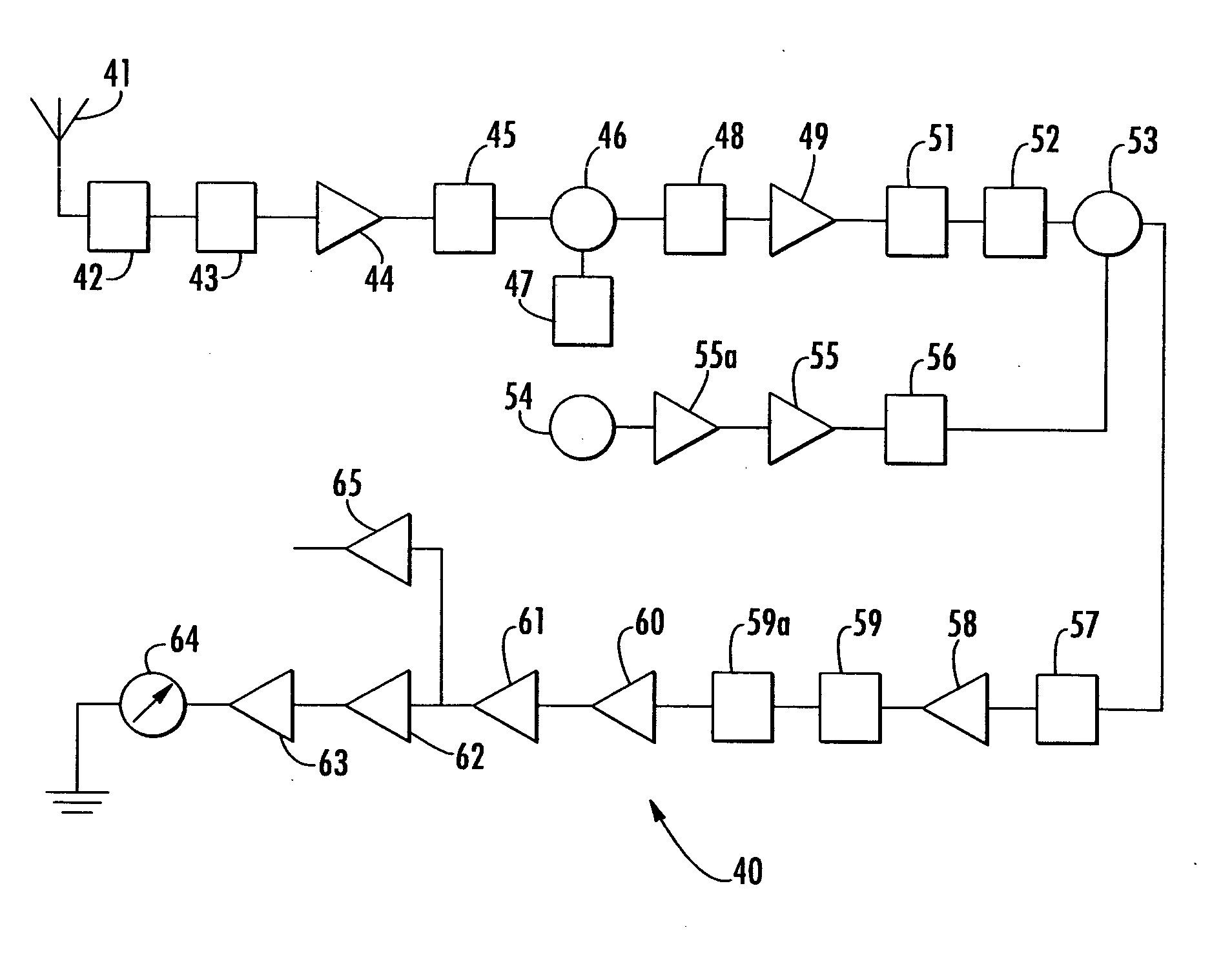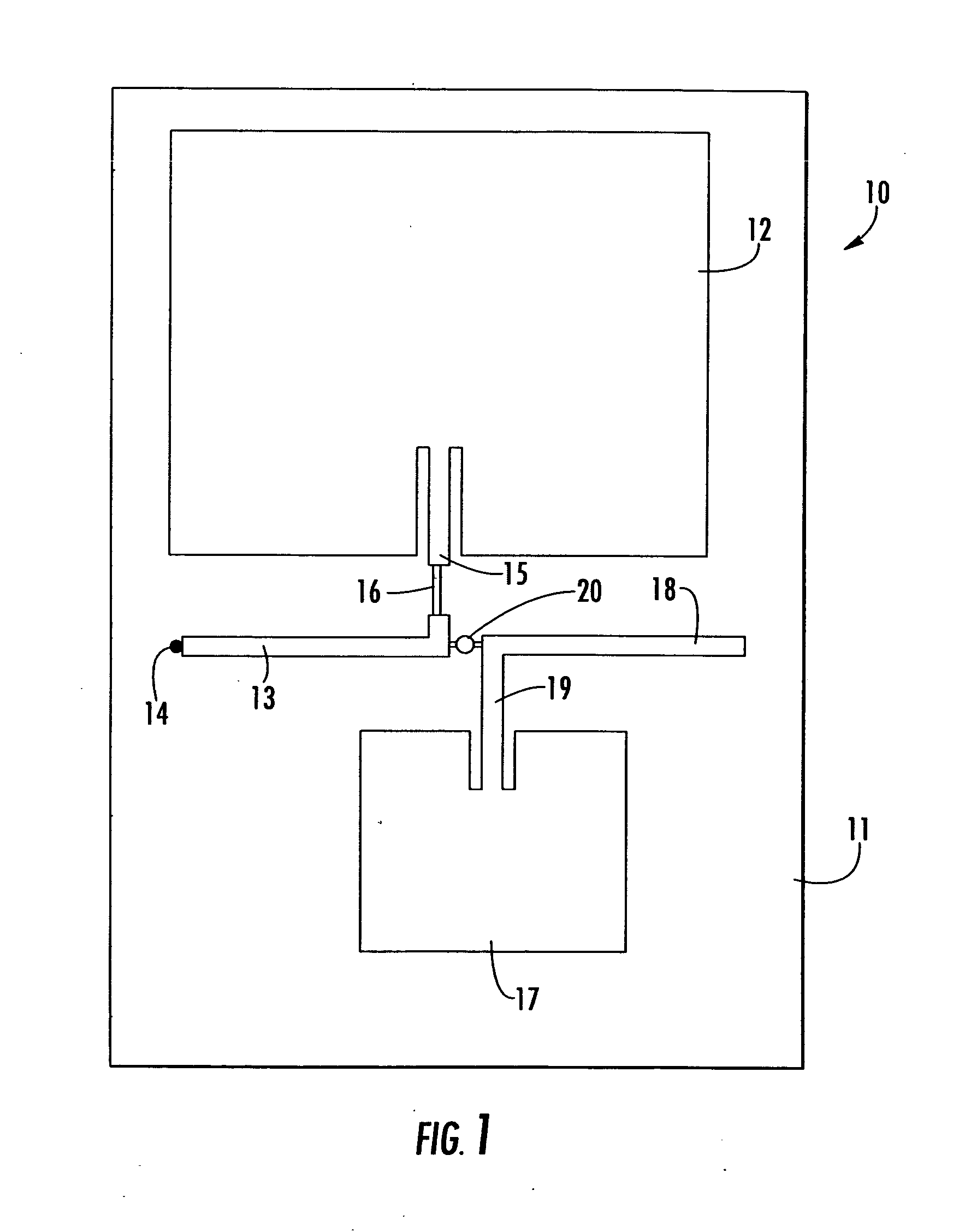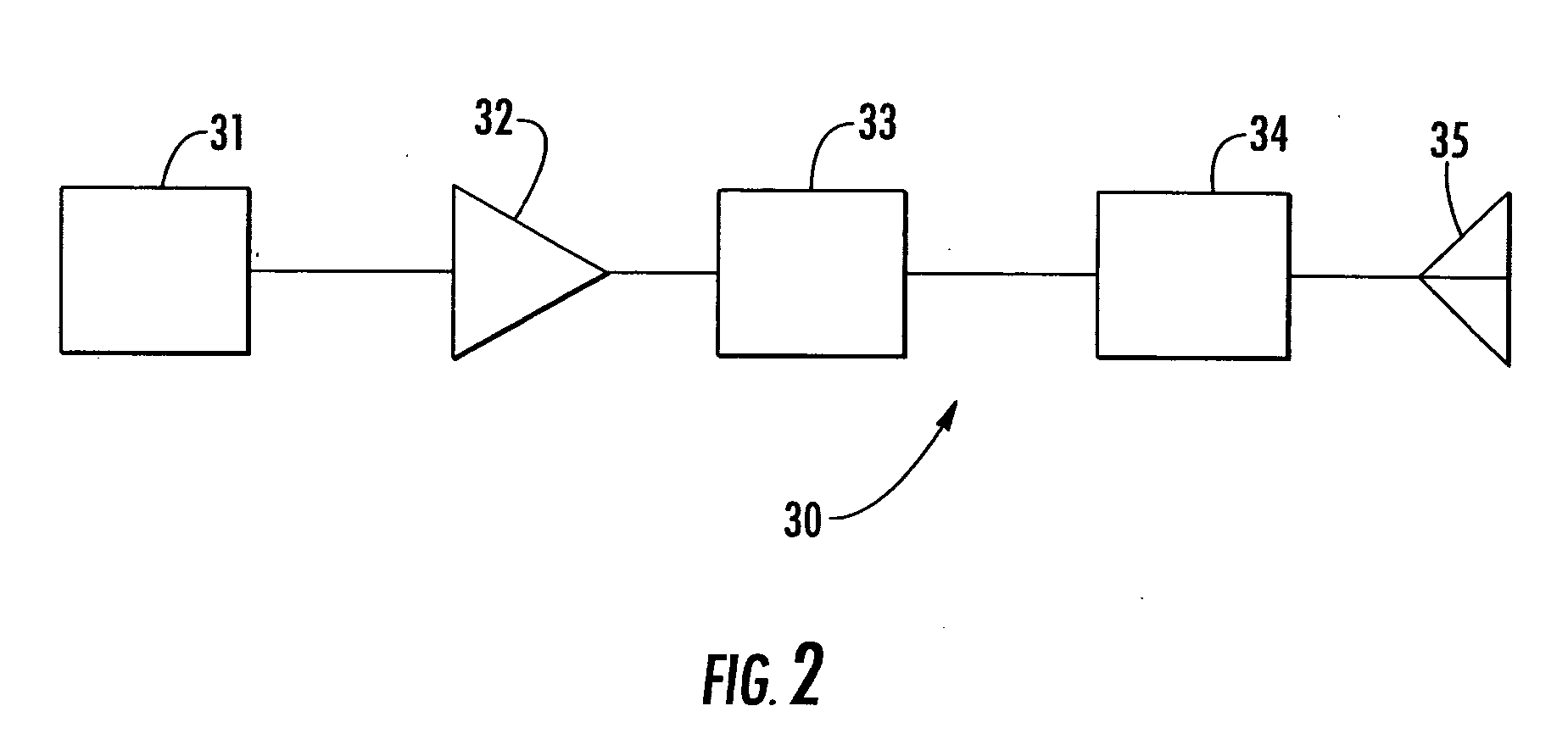Harmonic wireless transponder sensor and method
a wireless transponder and wireless sensor technology, applied in the field of sensors, can solve the problems of invasive insulation integrity, end the useful life of pipes, vessels or structural parts, and high cost of inspection
- Summary
- Abstract
- Description
- Claims
- Application Information
AI Technical Summary
Benefits of technology
Problems solved by technology
Method used
Image
Examples
example 1
[0018] The transponder 10 of FIG. 1 is positioned under the thermal insulation of a carbon steel vessel located in a tank farm of an industrial facility. The antennas 35 and 41 of the transmitter 30 and the receiver 40 of FIGS. 2 and 3 respectively are pointed at the tank from a distance of fifty feet. The transmitter 30 is turned on to direct electromagnetic radiation at the transponder 10. The signal indicated by the meter 64 of the receiver 40 is twelve decibels.
[0019] Every month for the next sixty nine months, the antennas 35 and 41 of the transmitter 30 and the receiver 40 of FIGS. 2 and 3 respectively are pointed at the tank from a distance of fifty feet. The transmitter 30 is turned on to direct electromagnetic radiation at the transponder 10. The signal indicated by the meter 64 of the receiver 40 is twelve decibels each time the transponder 10 is interrogated. However, the interrogation at seventy months indicates a response of only two decibels.
[0020] The insulation is ...
example 2
[0021] A transponder like the transponder 10 of FIG. 1 (but not having the carbon steel wire 16 in the transmission line 15 and instead having a carbon steel wire soldered at each end thereof to and bridging the first resonator 13 and the second resonator 18) is positioned under the thermal insulation of a carbon steel tank located in a tank farm of an industrial facility. The antennas 35 and 41 of the transmitter 30 and the receiver 40 of FIGS. 2 and 3 respectively are pointed at the tank from a distance of sixty feet. The transmitter 30 is turned on to direct electromagnetic radiation at the transponder 10. The signal indicated by the meter 64 of the receiver 40 is two decibels.
[0022] Every month for the next eighty eight months, the antennas 35 and 41 of the transmitter 30 and the receiver 40 of FIGS. 2 and 3 respectively are pointed at the tank from a distance of fifty feet. The transmitter 30 is turned on to direct electromagnetic radiation at the transponder 10. The signal in...
example 3
[0024] A reference transponder like the transponder 10 of FIG. 1 is produced but having no carbon steel wire in the first transmission line 15. The reference transponder is positioned under the thermal insulation near one end of a carbon steel tank of an over-the-road tank trailer. A transponder like the transponder 10 of FIG. 1 is produced (but having no carbon steel wire in the first transmission line 15 but having a thermostatic switch bridging the first resonator 13 and the second resonator 18) and positioned under the thermal insulation of the tank trailer near the other end of the tank trailer. The tank trailer is used to transport molten sulfur from a sulfur recovery installation to a sulfuric acid production plant. The molten sulfur in the tank trailer needs to be at least one hundred and forty degrees Celsius when the tank trailer leaves the sulfur recovery installation so that the sulfur is still molten by the time the tank trailer arrives at the sulfuric acid plant. The t...
PUM
 Login to View More
Login to View More Abstract
Description
Claims
Application Information
 Login to View More
Login to View More - R&D
- Intellectual Property
- Life Sciences
- Materials
- Tech Scout
- Unparalleled Data Quality
- Higher Quality Content
- 60% Fewer Hallucinations
Browse by: Latest US Patents, China's latest patents, Technical Efficacy Thesaurus, Application Domain, Technology Topic, Popular Technical Reports.
© 2025 PatSnap. All rights reserved.Legal|Privacy policy|Modern Slavery Act Transparency Statement|Sitemap|About US| Contact US: help@patsnap.com



